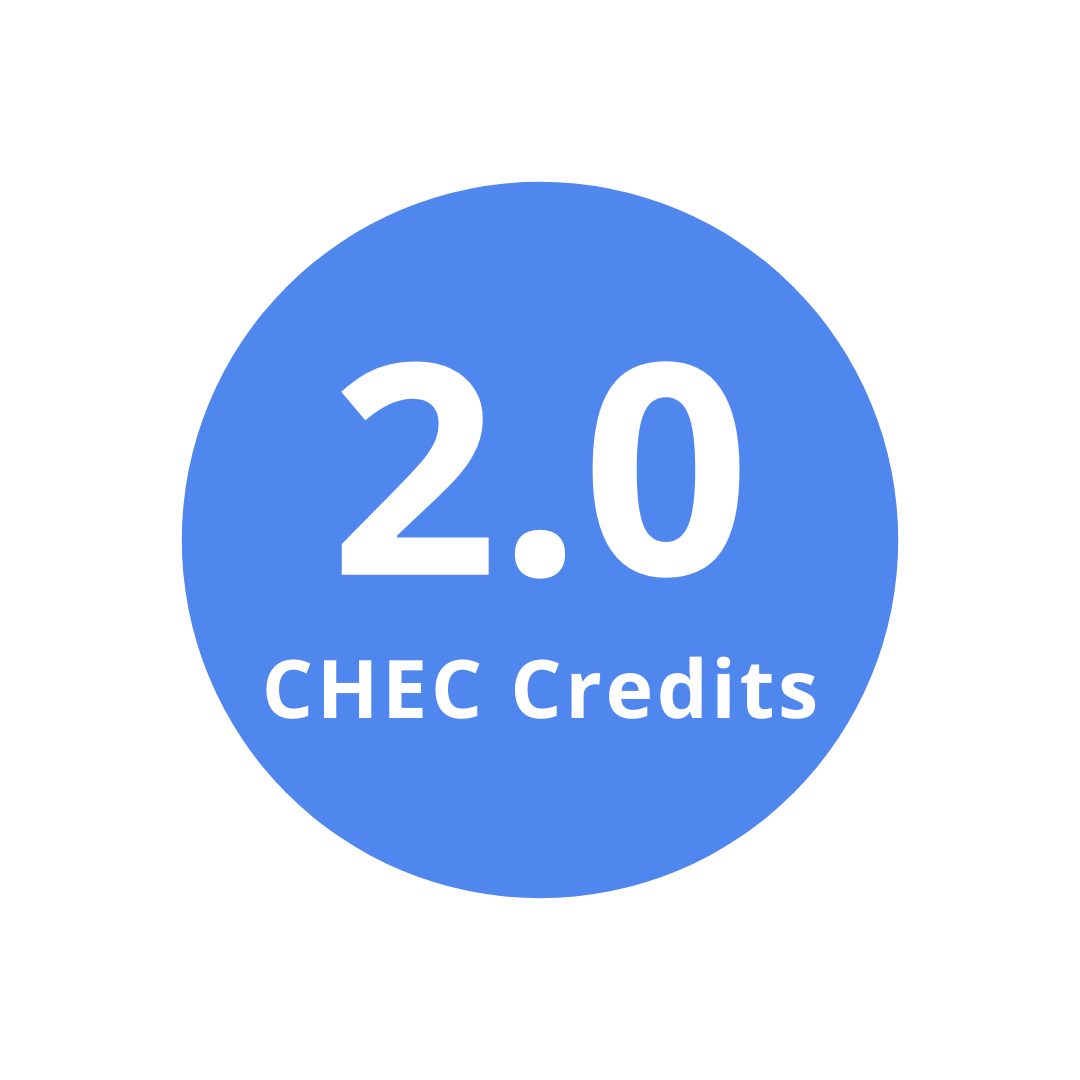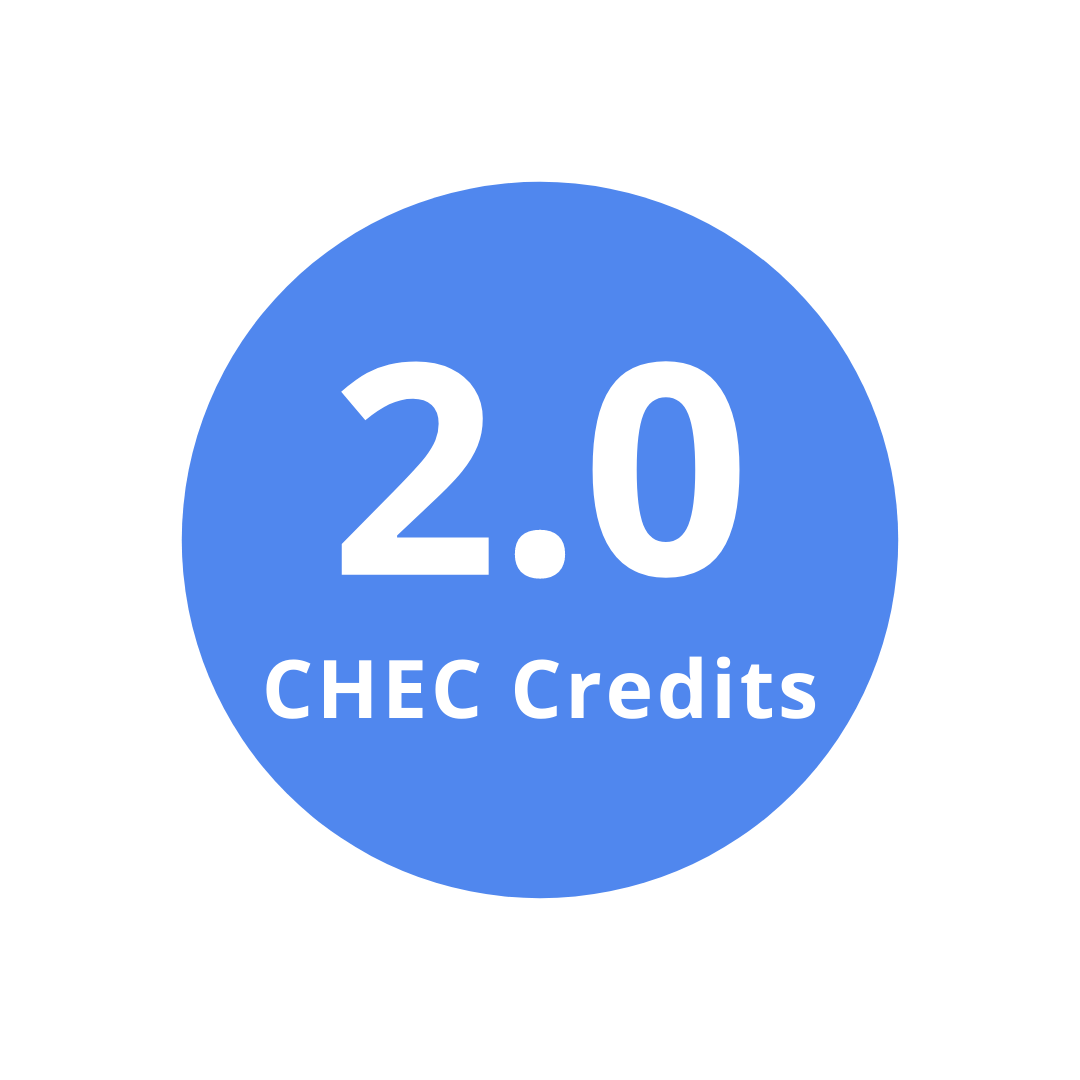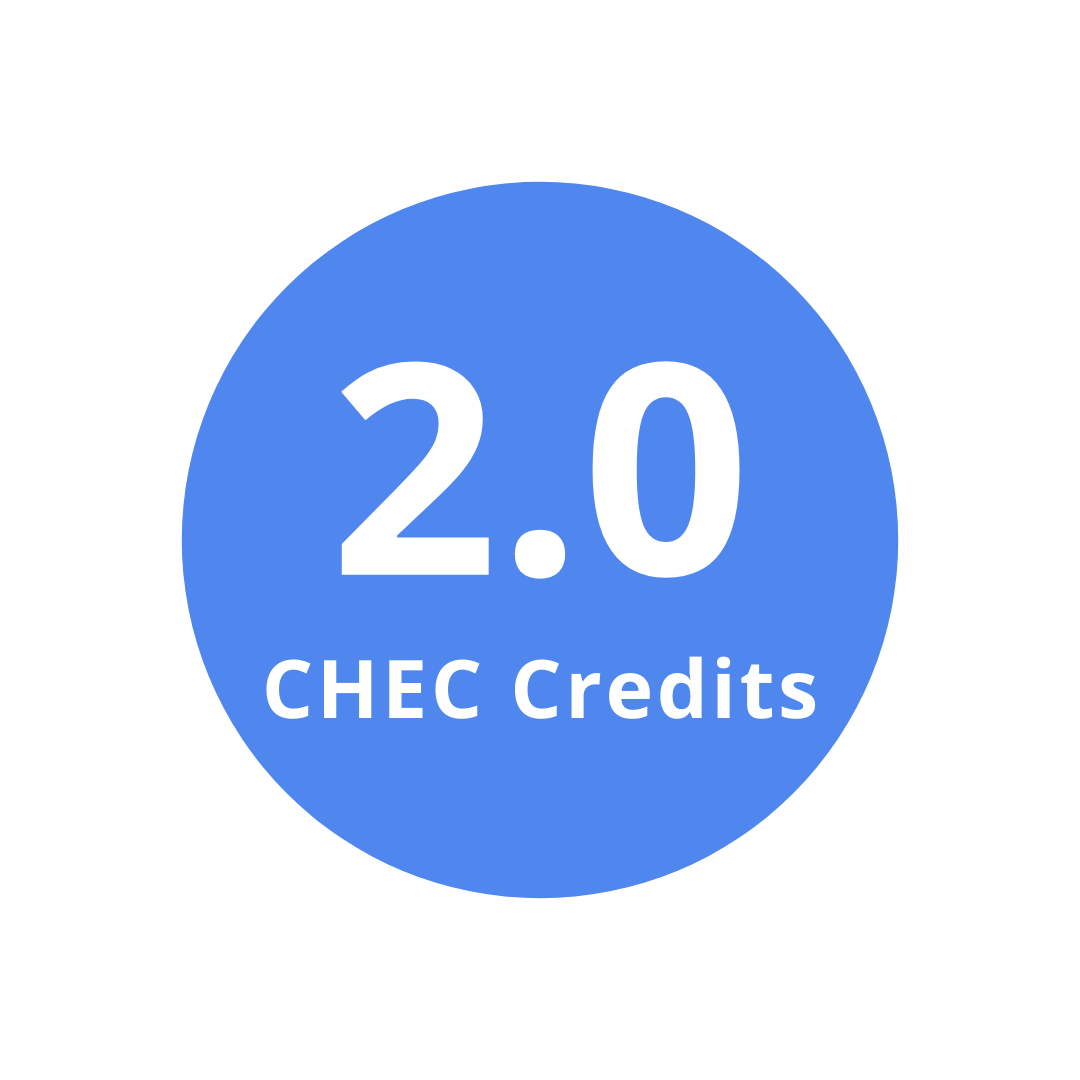
Catalog Advanced Search
-
Contains 2 Component(s) Includes a Live Web Event on 06/06/2024 at 2:00 PM (EDT)
The webinar will provide an overview of the health disparities experienced by LBTQ+ women and the critical role of allies and supporters in reducing health inequities by delivering inclusive care.
The webinar will provide an overview of the health disparities experienced by LBQT+ women and the critical role of allies and supporters in reducing health inequities by delivering inclusive care. Participants will learn best practices for practicing cultural humility, building trust to promote disclosure, and creating nurturing and welcoming environments. Additionally, the presentation will address nuanced health disparities experienced by LBQT+ women and the systemic challenges that hinder healthcare access. Research on discrimination and stigmatization within healthcare will be integrated to aid in a comprehensive understanding of the diverse needs of LBQT+ women. Key LBTQ+ terminology will be reviewed to ensure inclusive and respectful dialogue between patients and providers. Panelists will highlight the success of the LA County Sexual and Gender Diverse Women’s Health Collaborative’s ally training program and provide effective strategies for replicating and adapting the curriculum, program format, promotional strategies, and evaluation tools in other communities.
Upon completion of this webinar, participants will be able to:
- Describe two roles of allies in reducing health disparities for LGBTQ+ women.
- List three reasons why allies, assumptions, and implicit biases impact the delivery of quality healthcare.
- Identify four resources for LBQT+ networks and their support networks.

Julie Friedman, MPH (Moderator)
Director
Iris Cantor-UCLA Women's Health Education and Research Center
Julie Friedman, MPH is a member of the LA County Sexual and Gender Diverse Women’s Health Collaborative and as the director of the Iris Cantor-UCLA Women’s Health Education and Research Center, she oversees the operation of the Collaborative. At the Center, her work focuses on the social determinants of women’s health. In collaboration with cross-sector partners, she engages in education, research, and advocacy initiatives focused on vulnerable women in LA County to advance their health across the lifespan. Previously she was the executive director of the Early Childhood Parenting Center, managed the employee health promotion program at the Los Angeles Times, and was a consultant with Growing Health Partnerships working with nonprofit organizations. She has published articles on worksite wellness, health promotion, and women’s health. She serves as a Board of Supervisors appointee to the LA County Commission for Women where she is the Chair of the Health Committee.

Sequoia Thompson
Steering Committee Member
LA County Sexual and Gender Diverse Women's Health Collaborative
Sequoia Thompson is a Steering Committee member of the LA County Sexual and Gender Diverse Women’s Health Collaborative. As a healer through dialogue, Sequoia utilizes her background in psychology and craft as a motivational speaker, and somatic dialogue facilitator to empower her audience to see themselves as changemakers who create spaces that offer dignity, holistic care, and psychological safety for all identities and ways of being.
Sequoia incorporates storytelling to humanize discussions around Intersectional Identity, Inclusive Language, Racial Equity, and Accountability. This pairing of storytelling and administrative decolonizing creates an impactful ambiance for transformational and sustainable change. Her transnational research investigating European and American heteronormative colonialism fuels her passion for social justice and QTBIPOC advocacy.
Sequoia is an ardent advocate for mental health and incorporates her journey through Major Depressive Disorder to empower those who may not have the resources to understand the condition and thrive through and with it.
Gabrielle Agana Pascua
Training Coordinator
LA County Sexual & Gender Diverse Women’s Health Collaborative
Gabrielle Agana Pascua is a consultant for the City of West Hollywood, serving as the Training Coordinator for the LA County Sexual & Gender Diverse Women’s Health Collaborative. She is also the Program Coordinator for the Iris Cantor – UCLA Women’s Health Education & Research Center, where she previously was an intern. She graduated from the University of California, Los Angeles in 2023 with a Bachelor of Science in Human Biology & Society. Throughout her undergraduate education, Gabrielle volunteered with UCLA’s Mobile Clinic Project as a Caseworker and member of the Health Education Committee. She brought street-side clinic access to West Hollywood at sites such as Salvation Army, the Los Angeles LGBT Center, and Hollywood Food Coalition. She now volunteers with UCLA’s Companion Care, which seeks to build sustainable bridges and establish a continuum of care between people experiencing homelessness with existing health and social services network in Los Angeles.
-
Register
- Early bird pricing available!
- Non-member - Free!
- Member - Free!
- Student Member - Free!
- Student Non-Member - Free!
- Regular Price after 06/06/2024 2:00 PM
- Non-member - $20
- Member - $10
- Student Member - $5
- Student Non-Member - $10
- More Information
-
Contains 2 Component(s) Includes a Live Web Event on 05/22/2024 at 2:00 PM (EDT)
This webinar will discuss essential elements of teamwork, collaboration, empowerment, and trust that are vital in establishing a secure environment for employees and clients.
In this webinar, we will delve into the essential elements of teamwork, collaboration, empowerment, and trust that are vital in establishing a secure environment for employees and clients. We will provide a theoretical framework for achieving ethical outcomes, discuss the significance of whistleblowing, and offer practical suggestions for constructing a safe space that fosters justice.
Upon completion of this webinar, participants will be able to:
- Apply ethical leadership, management, and behavior in creating a safe space for employees, students and clients.(Competency 8.1.2)
- Summarize three workplace behaviors that demonstrate moral and ethical courage, trust, and mutual respect.
- Intentionally practice moral and ethical courage, trust, and mutual respect in various work situations.

Jody L. Vogelzang, PhD, RDN, CHES®, FAND (Moderator)
Associate Professor
Grand Valley State University
Dr. Jody Vogelzang, a nationally recognized speaker, researcher, registered dietitian, and health education specialist, is an expert in community health who has spent the last two decades teaching in higher education. Her peers have formally recognized her for excellence in professional practice (Excellence in Public Health Nutrition (AND) and Achievements in Public Health Nutrition (APA) and for dedication to the high standards of the nutrition and dietetics profession through active participation, leadership, and devotion to serving others in nutrition and dietetics, as well as allied health fields (AND Medallion Award).
She holds a bachelor’s degree in dietetics from Michigan State University, a Master's Degree in Health Science from Grand Valley State University, a Master's of Arts in Biology from Miami University, and a Doctorate in Health Services specializing in community health from Walden University. She regularly volunteers in professional and community organizations locally, nationally, and internationally.
Sely-Ann Headley Johnson
Instructor of Nutrition and Health Science
Ball State University
Sely-Ann Johnson, PhD, brings diverse expertise in public health, teaching, research, and epidemiology, focusing on disaster preparedness, prevention, and food safety. In her previous role at the CDC Foundation, she served as an epidemiologist, overseeing multiple analytic projects. Her duties involved developing project summaries and data briefs, implementing process improvements, overseeing the creation of Tableau visualizations, and analyzing data to produce actionable outputs for stakeholders. She currently teaches public health courses at Ball State University and Perdue Global. Dr. Johnson holds a Ph.D. in Health Education and a Master of Public Health from the University of Toledo.

Amar Kanekar, PhD, MPH, MB, MCHES ®, CPH
Associate Professor and Graduate Program Coordinator for Health Education and Health Promotion
University of Arkansas at Little Rock
Dr. Kanekar is an Associate Professor and Graduate Program Coordinator for Health Education and Health Promotion at the University of Arkansas at Little Rock. His fourteen years of teaching experience involves more than 30 different courses (undergraduate and graduate) in the areas of public health, health education, and health promotion. Recipient of numerous teaching awards at the international, national, and local levels, his pedagogical techniques involve online –distance learning, hybrid, and face-to-face courses. His research areas of interest focus on adolescent health, measurement in health education, global health, online and hybrid pedagogy, and health behavior interventions. He currently serves on the Society for Public Health Education Ethics Committee and Editorial Board of the American Journal of Public Health and Journal of Alcohol and Drug Education at the national level and as Member at Large Finance at the Arkansas Society for Public Health Education at the state level.

Yuliya Shneyderman, PhD
Borough of Manhattan Community College
Yuliya Shneyderman, PhD, is an Associate Professor of Health Education at the Borough of Manhattan Community College. She co-coordinates the Associate in Science degree in Public Health. Her research interests are environmental health, sexual and reproductive health, and vaccine hesitancy. She serves on the SOPHE Ethics Committee.
-
Register
- Early bird pricing available!
- Non-member - Free!
- Member - Free!
- Student Member - Free!
- Student Non-Member - Free!
- Regular Price after 05/22/2024 2:00 PM
- Non-member - $20
- Member - $10
- Student Member - $5
- Student Non-Member - $10
- More Information
-
Contains 2 Component(s)
The goal of the webinar is to highlight ongoing mental health challenges that persist from the Covid-19 pandemic and to offer support and guidance on how to deal with these challenges.
Though the world has moved beyond the COVID-19 pandemic, the echoes of its impact on mental health continue to reverberate. The changing family dynamics, job markets, and societal landscapes have added layers of complexity to an already stressed mental health landscape. There has been an increase in mental resources and utilization, but people are still struggling to cope. The goal of the webinar is to highlight these ongoing challenges and to offer support and guidance on how to deal with these challenges. An interdisciplinary dialogue that will offer actionable insights, evidence-based strategies, and holistic approaches to mental wellness. Dr. Rettig will explore how these changes are affecting different age groups and what we can do to adapt and thrive in this new normal.
After this session, the participants will be able to:
1. Discuss the long-term effects of pandemic-induced stress on physical health, with a focus on preventive measures.
2. Examine the impact of the current mental health crisis on the youth, specifically in educational settings.
3. Identify actionable strategies for individuals, families, and communities to address mental health concerns effectively.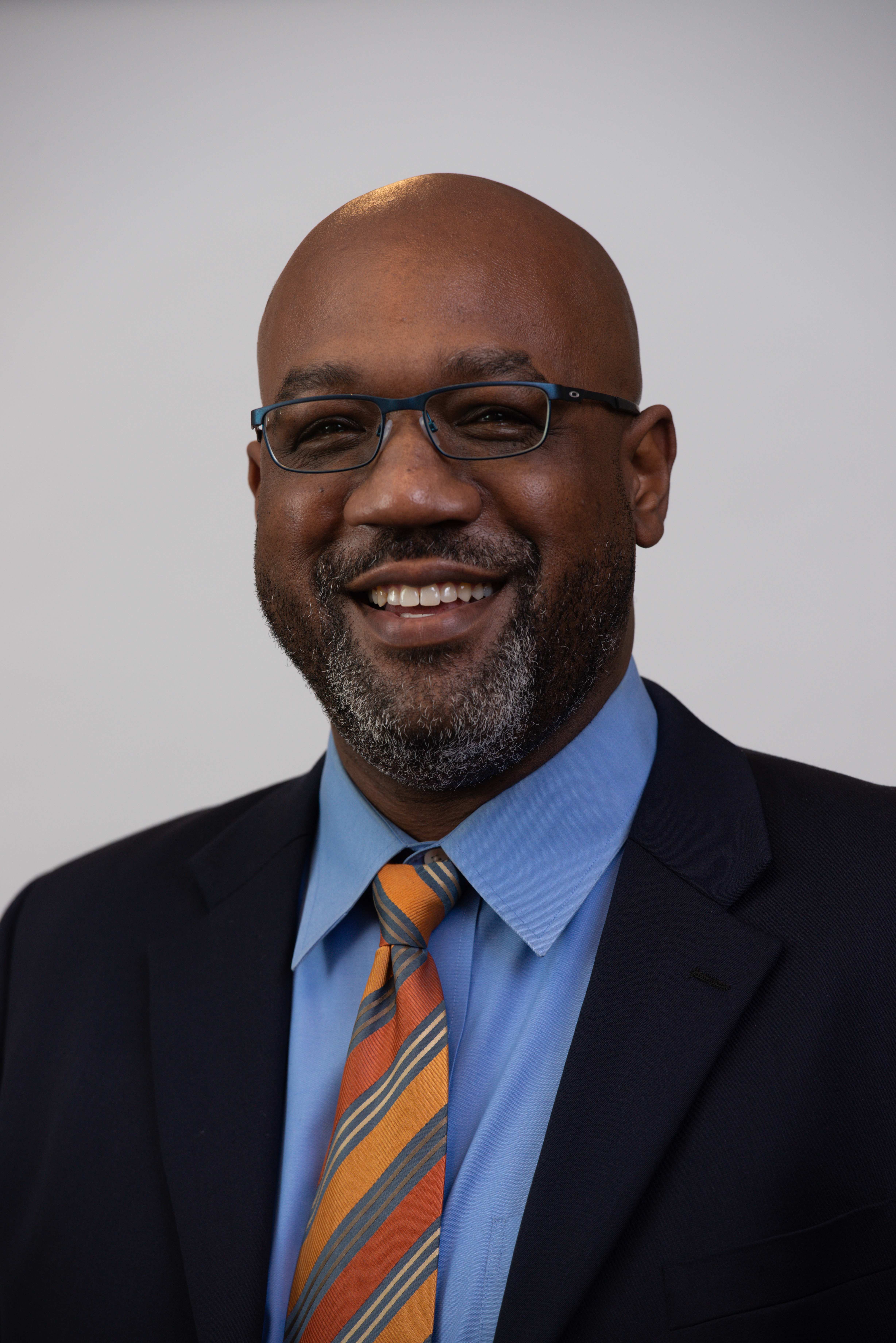
Shaylon Rettig, MD, MBA
Medical Director
UIW Health at the University of the Incarnate Word
Shaylon Rettig, MD, MBA is the Medical Director for UIW Health at the University of the Incarnate Word. He is board certified in Pediatrics and Sports Medicine. Dr. Rettig serves as a medical consultant for several San Antonio, Texas area school districts, supporting school nurses and nearly 140,000 students. During the COVID-19 pandemic Dr. Rettig worked at a Children's emergency room and assisted many area school districts through their shutdowns and reopenings. >span class="NormalTextRun SCXW240477109 BCX8">financial and physical impact of the pandemic on individuals and families. Dr. Rettig was brought on by the University of the Incarnate Word to assist the University in the transition from COVID and to imagine and to reimagine health and wellness for University employees and students in a post-pandemic era.

Ashley S. Love, DrPH, DHSc, MPH, MS, CPH (Moderator)
Associate Professor
University of Incarnate Word
Dr. Ashley S. Love, an experienced public health professional with over 20 years of expertise, is committed to addressing social determinants of health. Trained at Columbia University and Nova Southeastern University and having lived in Europe, Asia, and North America, she brings a multicultural perspective to her work. As the former State Epidemiologist of Delaware/Bureau Chief of Epidemiology, Dr. Love was crucial in effectively managing the H1N1 pandemic in 2009. Her interdisciplinary and interfaith approach, coupled with her experience working with diverse age and racial/minority groups, enriches her work. Dr. Love’s areas of expertise include public health, healthcare education, telehealth, nutrition, and gerontology. She has taught numerous community college and university courses, employing innovative approaches. She has been an award-winning educator, certified online instructor, and an active-duty military spouse for over two decades. She is an associate professor and director of graduate studies at the University of Incarnate Word’s Dreeben School of Education.
-
Register
- Non-member - $18
- Member - $9
- Student Member - $5
- Student Non-Member - $10
- More Information
-
Register
-
Contains 8 Component(s)
FREE TRAINING: Safe Me & Empowering Us is rooted in the Truth, Racial Healing & Transformation Framework. It will explore what makes a healthy relationship, what is sexual violence and how we identify it, and how to be advocate in your community.
Through receipt of a Safe States Alliance Seed Grant, the Society for Public Health Education has adopted an in-person Safe Me & Empowering Us Training into an online asynchronous training session. Through the collaboration with the Black Women’s Health Imperative’s My Sister's Keeper program and rooted in the Truth, Racial Healing & Transformation Framework, this training is for women of color ages 18-25. It will explore what makes a healthy relationship; what sexual violence is and how we identify it; and, how to be an advocate in your community.

Ozioma Ikejiani
Public Health Associate
The Society for Public Health Education
-
Register
- Non-member - Free!
- Member - Free!
- Student Member - Free!
- Student Non-Member - Free!
- More Information
-
Register
-
Contains 2 Component(s)
SOPHE Webinar: Taking Your Evidence-Based Programs Remote: Needs Assessment for Success In partnership with the National Recreation and Park Association
SOPHE Webinar: Taking Your Evidence-Based Programs Remote: Needs Assessment for Success
In partnership with the National Recreation and Park Association.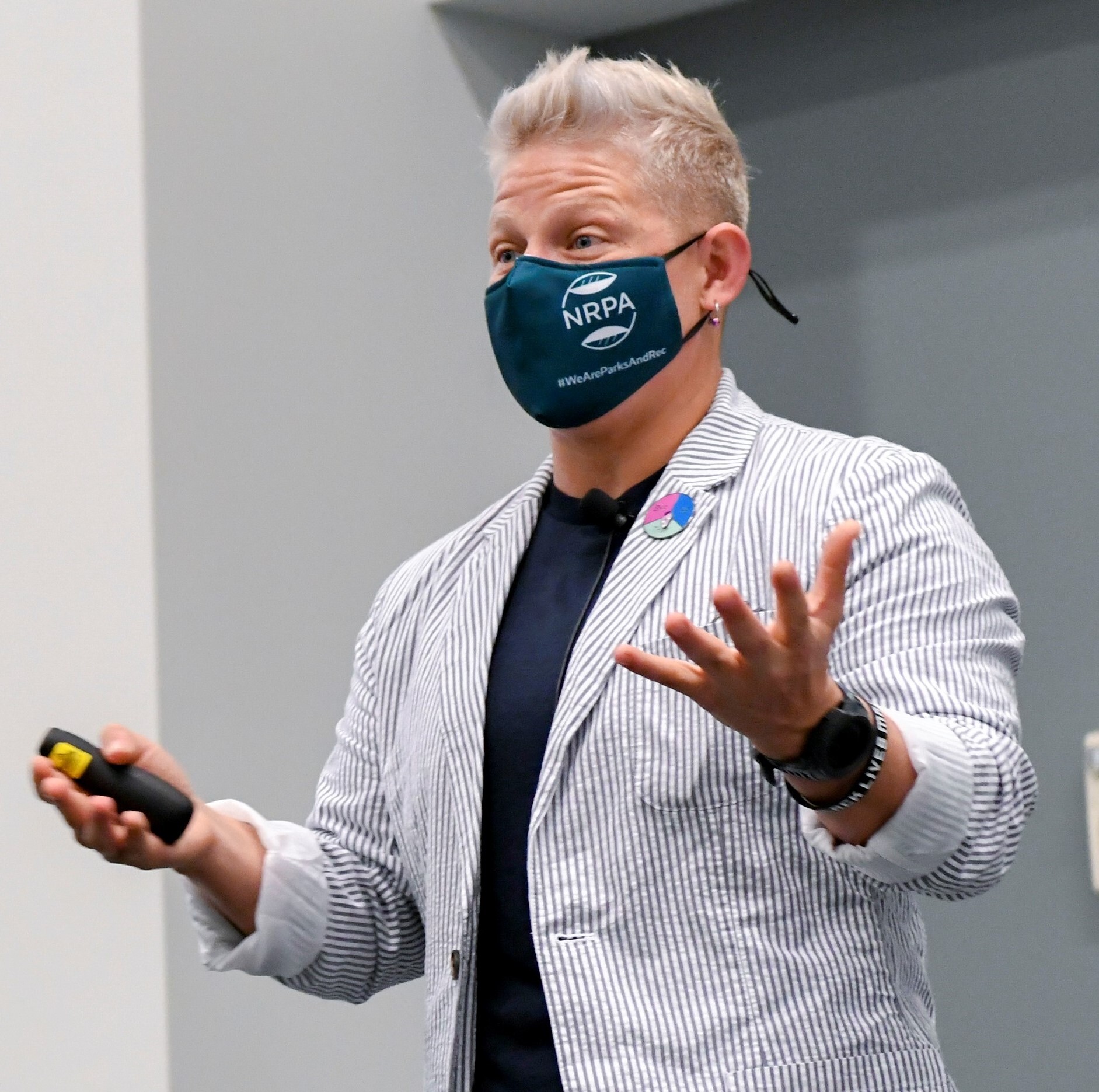
Tiff Cunin
Senior Program Manager
National Recreation and Park Association
Tiff Cunin is a Senior Health Program Manager at the National Recreation and Park Association where they manage the healthy aging in parks body of work. The healthy aging in parks portfolio is focused on identifying community-based solutions that ensure the equitable access to programs, services, resources and more to support aging in place through parks and recreation in more than 10,000 communities across the country.
-
Register
- Non-member - Free!
- Member - Free!
- Student Member - Free!
- Student Non-Member - Free!
- More Information
-
Register
-
Contains 2 Component(s)
SOPHE, in partnership with the Arthritis Foundation, created this webinar to understand the burden of arthritis and the need for evidence-based programs. This webinar focuses specifically on the Walk With Ease program, how to choose the best program format for your organization, and how to budget and sustain the program.
SOPHE, in partnership with the Arthritis Foundation, created this webinar to understand the burden of arthritis and the need for evidence-based programs. This webinar focuses specifically on the Walk With Ease program, how to choose the best program format for your organization, and how to budget and sustain the program.

Tiff Cunin
Senior Program Manager
National Recreation and Park Association
Tiff Cunin is a Senior Health Program Manager at the National Recreation and Park Association where they manage the healthy aging in parks body of work. The healthy aging in parks portfolio is focused on identifying community-based solutions that ensure the equitable access to programs, services, resources and more to support aging in place through parks and recreation in more than 10,000 communities across the country.
-
Register
- Non-member - Free!
- Member - Free!
- Student Member - Free!
- Student Non-Member - Free!
- More Information
-
Register
-
Contains 2 Component(s)
Fifty million Americans live with arthritis pain. Arthritis-Appropriate, Evidence-Based Interventions (AAEBIs) have been shown to decrease arthritis and disability and improve quality of life and are offered in communities and health departments in every state reaching more than 50,000 people a year. Despite their availability – and many having remote delivery options – such programs are currently under-used.
Fifty million Americans live with arthritis pain. Arthritis-Appropriate, Evidence-Based Interventions (AAEBIs) have been shown to decrease arthritis and disability and improve quality of life and are offered in communities and health departments in every state reaching more than 50,000 people a year. Despite their availability – and many having remote delivery options – such programs are currently under-used.

Tiff Cunin
Senior Program Manager
National Recreation and Park Association
Tiff Cunin is a Senior Health Program Manager at the National Recreation and Park Association where they manage the healthy aging in parks body of work. The healthy aging in parks portfolio is focused on identifying community-based solutions that ensure the equitable access to programs, services, resources and more to support aging in place through parks and recreation in more than 10,000 communities across the country.

Julie Coleman
CDC Public Health Associate
Osteoarthritis Action Alliance
Julie Coleman is a Center for Disease Control and Prevention (CDC) Public Health Associate. She oversee the Arthritis-Appropriate Evidence-Based Intervention Approval Process at the Osteoarthritis Action Alliance and has assisted SOPHE in the development of the its toolkit on supporting remote delivery of AAEBIs.
-
Register
- Non-member - Free!
- Member - Free!
- Student Member - Free!
- Student Non-Member - Free!
- More Information
-
Register
-
Contains 3 Component(s), Includes Credits
Publication Date: January 27, 2022 The purpose of this article was to identify any association between income inequality and bullying victimization or perpetration and to distinguish any variables mediating these associations.
Previous research indicates that the disproportionate distribution of income within society is associated with aggression and violence. Although research has been conducted identifying the relationship between income inequality and bullying victimization and perpetration, little is known about possible mediators. We investigated the association between income inequality and bullying perpetration and victimization among adolescents participating in the Cannabis, Obesity, Mental health, Physical activity, Alcohol use, Smoking, and Sedentary behavior (COMPASS) study. We identified whether school connectedness and psychosocial well-being mediated the relationship between income inequality and bullying behavior. This study used pooled cross-sectional data from 147,748 adolescents aged 13 to 18 from three waves (2015–2016, 2016–2017, 2017–2018) of the COMPASS study from 157 secondary schools in British Columbia, Alberta, Ontario, and Quebec (Canada). The Gini coefficient was calculated based on the school Census Divisions (CD) using the Canada 2016 Census and linked with student data. We used multilevel modeling to investigate the relationship between income inequality and self-reported bullying victimization and perpetration, while controlling for individual-, school-, and CD-level characteristics. A standard deviation increase in Gini coefficient was associated with increased odds for bullying victimization and perpetration. Findings were observed among girls; however, inequality was only associated with perpetration among boys. We identified social cohesion and psychosocial well-being as potential mediators. To counter the adverse effects of income inequality, school-based interventions designed to increase school connectedness and student psychosocial well-being should be implemented to protect against bullying.
-
Register
- Non-member - $36
- Member - $18
- Student Member - $10
- Student Non-Member - $21
- More Information
-
Register
-
Contains 3 Component(s), Includes Credits
Publication Date: January 6, 2018 The purpose of this article was to determine if an increase of health improvement policies compromises educational performance in schools.
Background. Implementing health improvement is often perceived as diverting resource away from schools’ core business, reflecting an assumption of a “zero-sum game” between health and education. There is some evidence that health behaviors may affect young people’s educational outcomes. However, associations between implementation of school health improvement and educational outcomes remains underinvestigated. Methods. The study linked school-level data on free school meal (FSM) entitlement, educational outcomes, and school attendance, obtained from government websites, with data from the School Environment Questionnaire (SEQ) on health improvement activity collected in Wales (2015/2016). Spearman’s rank correlation coefficients and linear regression models tested the extent of association between health improvement activity and attendance and educational outcomes. Results. SEQ data were provided by 100/115 network schools (87%), of whom data on educational performance were obtained from 97. The percentage of pupils entitled to FSM predicted most of the between-school variance in achievement and attendance. Linear regression models demonstrated significant positive associations of all measures of health improvement activity with attainment at Key Stage (KS) 3, apart from mental health education in the curriculum and organizational commitment to health. Student and parent involvement in planning health activities were associated with improved school attendance. There were no significant associations between health improvement and KS4 attainment. Conclusion. Implementing health improvement activity does not have a detrimental effect on schools’ educational performance. There is tentative evidence of the reverse, with better educational outcomes in schools with more extensive health improvement policies and practices. Further research should investigate processes by which this occurs and variations by socioeconomic status.
-
Register
- Non-member - $36
- Member - $18
- Student Member - $10
- Student Non-Member - $21
- More Information
-
Register
-
Contains 3 Component(s), Includes Credits
Publication Date: August 1, 2018, This article provides information on how many high school and college students are aware of the GYT campaign and if this impacts their decision to get STD/HIV testing.
Adolescents and young adults are disproportionately affected by sexually transmitted diseases (STDs). This study examined the association of GYT: Get Yourself Tested (GYT), a sexual health social marketing campaign, with several sexual health behaviors on a nationally representative sample of high school (HS) and college students (n = 2,329) recruited through an online panel survey. Behaviors examined were STD testing, HIV testing, and whether students had communication with health care providers and their romantic partners about STDs and STD testing. Rao-Scott chi-square tests and multivariable logistic regression models were conducted. The results indicated college students were more aware of GYT than HS students. Awareness of GYT was significantly associated with STD testing (p < .05), HIV testing (p < .01), and talking with romantic partners (p < .01) for college students but only with STD testing (p < .05) and talking to a provider (p < .05) for HS students. The differences between HS and college students provide insight for those developing and implementing interventions across such a broad age range of youth.
-
Register
- Non-member - $36
- Member - $18
- Student Member - $10
- Student Non-Member - $21
- More Information
-
Register



